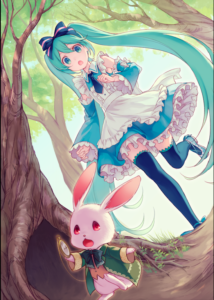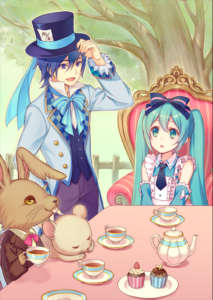Aleksandra Szczerba, researcher at Kids Industries, explores the ubiquity of geek culture today, and the very real chance that if you’re reading this, you’ve long since become one.
[divider style=”solid” top=”20″ bottom=”20″]

No longer constrained by the four walls of a dimly-lit basement or the stacks of a comic book store. No longer only openly revered by social outcasts (and covertly by everyone else in fear of being shunned). So-called “geek culture” is – in many ways – no more. Or at least it has evolved to be something vastly different than it has been in the past. The cornerstones of geek culture of decades gone by, from sci-fi to comic books, from video games to anime, don’t just have their footholds in the mainstream. They have become the mainstream, permeating today’s biggest children’s and adult media trends alike. So how have we all become geeks, how did this happen, and what does it mean for the future?
The most obvious way in which geek culture has become a staple in pop culture is of course through screen adaptations of comic books, both feature film and television. Although one would think that DC had the head start, having the rights to iconic characters such as Superman and Batman, it is Marvel that took the movie industry by storm in the past decade. The Marvel Cinematic Universe, comprising more than 20 films and dozens of characters, became a set of interwoven narratives and franchises, brought together in a grand finale in the form of the highest-grossing movie spectacular of all time (at the time at least). “Avengers: Endgame” earned $2.798B at the global box office, and is now the second highest grossing movie of all time, after being narrowly dethroned by the re-release of James Cameron’s “Avatar”. Notably, it is not the only Marvel film people around the world saw in droves: “Avengers: Infinity War” is fifth in terms of box office earnings, and the first “The Avengers” movie ranks 8th. The dollar signs speak for themselves – it’s not just geeks who are all over superheroes today.
Although “Endgame” brought a sense of finality to the MCU, Marvel is not slowing down – it was only the end of Phase 3, and we are already well into Phase 4 with the release of “Black Widow” and the many streaming titles being released on Disney+. Each series is dedicated to developing fan-favourite side characters, and these have been a hit for the platform, both in drawing in subscribers – and in drawing critical acclaim. The June release of “Loki” coincided with Disney+’s biggest increase in mobile app downloads among major streamers, with a 39% increase in the week ending 27th June, and an 11% increase in streaming sessions, according to Bloomberg’s Apptopia data, and in general Disney+ is currently chipping away at Netflix’s dominance in the streaming space. It definitely takes a bit of a geek to want to watch a multi-episode series about a villain or a supporting character who didn’t get their own feature length movie, and clearly there is no shortage of those out there. They also come in all shapes and sizes – at KI we have interviewed children as young as 6 who report enjoying watching Marvel series with their parents.
To put it simply: superheroes are cool now. And it’s not just the MCU. The “DC Extended Universe” may not have taken off in the same way, but television’s “Arrowverse” definitely has its own very loyal following. Superhero movies and TV shows, like “Logan” or HBO’s “Watchmen”, have received prestigious accolades. Comic book brands are no longer “for kids” or “for geeks” – everyone knows these stories and characters, including their mother, father and brother. Once upon a time everyone knew that Superman was the super strong guy, now everyone has an opinion on where they stand in the Captain America vs Iron Man conflict in “Civil War”. There is something for everyone in comic book stories, from a bit of good old fashioned fisticuffs, in-depth character conflict, to comedy and teenage high school hijinks. Many of today’s superhero stories are also more diverse and more relatable; everyone is bound to find a type of superhero they can enjoy.
To an extent the appeal of comic book movies also translates to other expressions of fandom. Parts of the “geek” industry have seen growth, from collectable merchandise like Funko POP! action figures (Funko reports growth every year and quarter, with the POP! line specifically most recently seeing growth of 33% in US and Europe in the first quarter of 2021), to events (the San Diego Comic Con attracts upwards of 130 thousand attendees every year). Similarly, one would expect this to translate to comic books – and many in the industry do cite MCU’s success as the reason for the U-turn in the decline in comic sales post-1993 (i.e. when the comic book bubble burst – but that’s a story for another day). In the 2010s, comic book sales in the US alone crossed the $1 billion mark in 2015, and grew to a $1.2 billion peak in 2019. However according to retailers the ‘movie-lover-to-comic-reader’ conversion is difficult, and hasn’t been all that successful. Yes, more people come into stores and give comics a try, but they also stick to content that is as close to the adaptation as possible. The industry has seen boosts and has seen increased sales related directly to trending storylines or characters – but the bottom line is this: we might collectively be comic book movie geeks, but we’re not quite comic book geeks (yet).
Similarly to superheroes, once upon a time interest in anime and manga may have been limited to people known as “otakus” or “weebs”, but in the year 2021 things could not be more different once again. The anime industry is worth over $20 billion today, with overseas markets accounting for half of the Japanese animation industry’s profits according to the Association of Japanese Animations. In 2019 the industry reached an all time high of $24 billion, with the overseas market valued at around $11 billion – a 19% increase on 2018, and almost a fivefold increase from 2009. These numbers include everything from animation itself (TV and film), to music, and merchandise, with the latter alone being worth over $5.2 billion globally. The dollar signs don’t lie – they’re all pointing East. Not only are we geeks, we’re also otakus.
Data from various streaming services further backs up the data on anime’s growth. According to the specialist anime streamer Crunchyroll’s data, a whopping 8 in 10 people today watch anime, and the platform has felt this. During last year’s Festival of Licensing the platform boasted of nine consecutive years of record sales (the site doesn’t just offer anime, but also manga and merchandise), and in February 2021 the site had hit 4 million paying subscribers, alongside over 100 million registered users, having grown its paid memberships by 33% in the space of just six months. In December 2020 news emerged regarding a possible monumental merger worth almost $1.2 billion in which Crunchyroll would be acquired by another anime giant: Sony’s Funimation. The deal is still up in the air, but if the deal goes through, it will lead to the creation of a veritable anime giant.
Anime isn’t just something found on niche platforms however; regular mainstream players recognise the power of anime too. In 2020 Netflix reported that more than 100 million households across the globe had watched at least one anime title on the platform between January and September, an increase by 50% from the year before, and that anime titles had appeared in top 10 lists in nearly 100 countries. The company has a Tokyo-based team dedicated to anime production and is regularly producing new content as well as acquiring new titles. Just as an example, earlier this year they released a well-received two-part Sailor Moon movie “Pretty Guardian Sailor Moon Eternal”, and August will see the release of “The Witcher: Nightmare of the Wolf”, an anime prequel to the live-action fantasy “The Witcher” series based on the Polish hit-books-turned-hit-video-games (now how’s that for layers of geekiness?)
Of course, the best known titles today are still the likes of Pokémon, Naruto, Studio Ghibli movies, but people are broadening their horizons. This exploration does not end with animation – manga sales were at an all time record high in 2020. Based on NPD’s BookScan data, across the 20 top selling adult graphic novels in the US in October 2020, 17 were manga titles. One of the biggest hits of today took the top three spots: My Hero Academia, a shōnen superhero-themed series popular with teenagers. This year an ever hotter commodity is the supernatural series Jujutsu Kaisen, particularly following the release of its anime adaptation; as of May this year it has 50 million copies in circulation, it has had successful brand collaborations including Uniqlo, and has topped the list of Japan’s most lucrative franchises of 2021 so far.
Anime and manga are popular enough in the English-speaking world that an element of fandom never previously accessible to these audiences is finally being opened up to them as well. This summer, for the first time ever, stage adaptations of popular anime will be streamed online with English subtitles for non-Japanese speaking audiences. These musical stage productions, also known as “2.5 dimensional musicals”, are a big part of manga, anime and video game fandom in Japan, but overseas audiences haven’t been able to engage with them officially until now. In August musical adaptations of Naruto, Sailor Moon and My Hero Academia will be streaming as part of a special online theatre event.
Geek culture has undoubtedly morphed and evolved over time, and the 21st century has seen it become – for all intents and purposes – pop culture, with previously “geek” franchises and fandoms becoming your standard, everyday, blockbuster fare. How “geek” evolves from this point on, we are yet to see – but it is definitely here to stay. It has made its place in the media landscape and it is seeping into trends everywhere. Geek franchises have bastions of fans, and they’re primed and ready to discover new titles and brands that align with their tastes. It is official: we have all become geeks (probably without even realising it).













